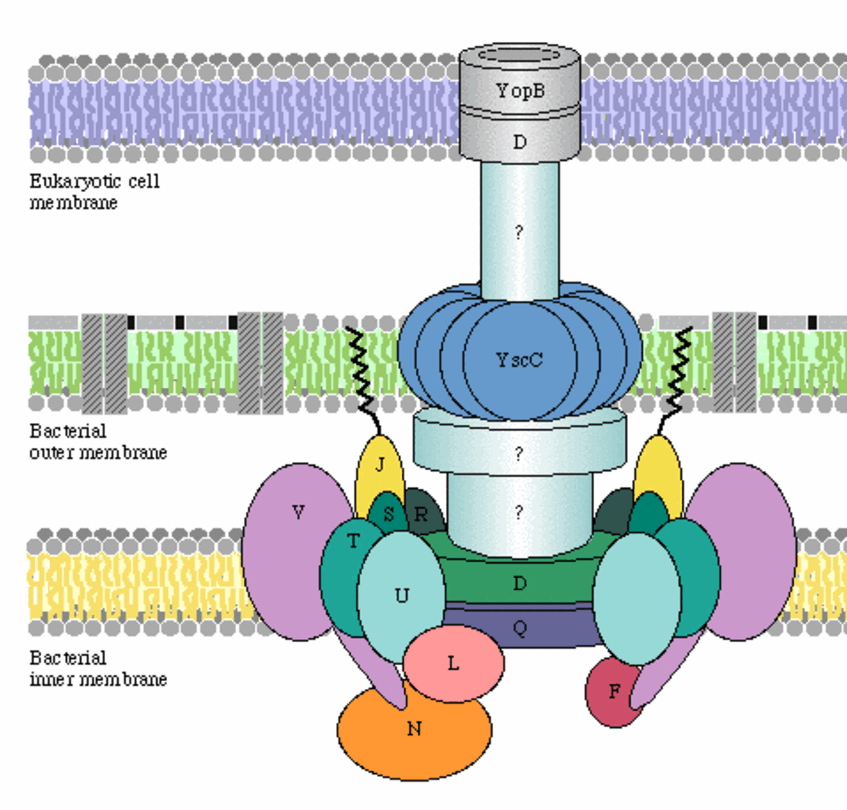Microbial symbionts and pathogens
Annoying for most of us, but dangerous or even life threatening for particular persons: infections by pathogenic bacteria are never welcome.
However, pathogenic lifestyle in nature is no bad habit – it has developed in evolution. Just the balance of the complex molecular interplay between microorganisms and us determines the role of a species we encounter. Thereby pathogenicity is just one of many possible modes of symbiotic host-microbe interactions.
The CUBE team investigates molecular mechanisms of host-microbial interactions. This research is motivated by the tremendous public health impact of microbial infections, but also by the growing knowledge about beneficial microbes around us, in our personal microbiomes, and in many ecosystems on earth.
The main goal of our work is to develop computational approaches to predict interacting molecules directly in genome sequences. These are e.g., adhesins (making cellular contacts), inter-cell secretion machineries and secreted molecules. Comparative genomics studies allow us to discover novel genes and to predict molecular principles involved in microbial molecular interactions.

